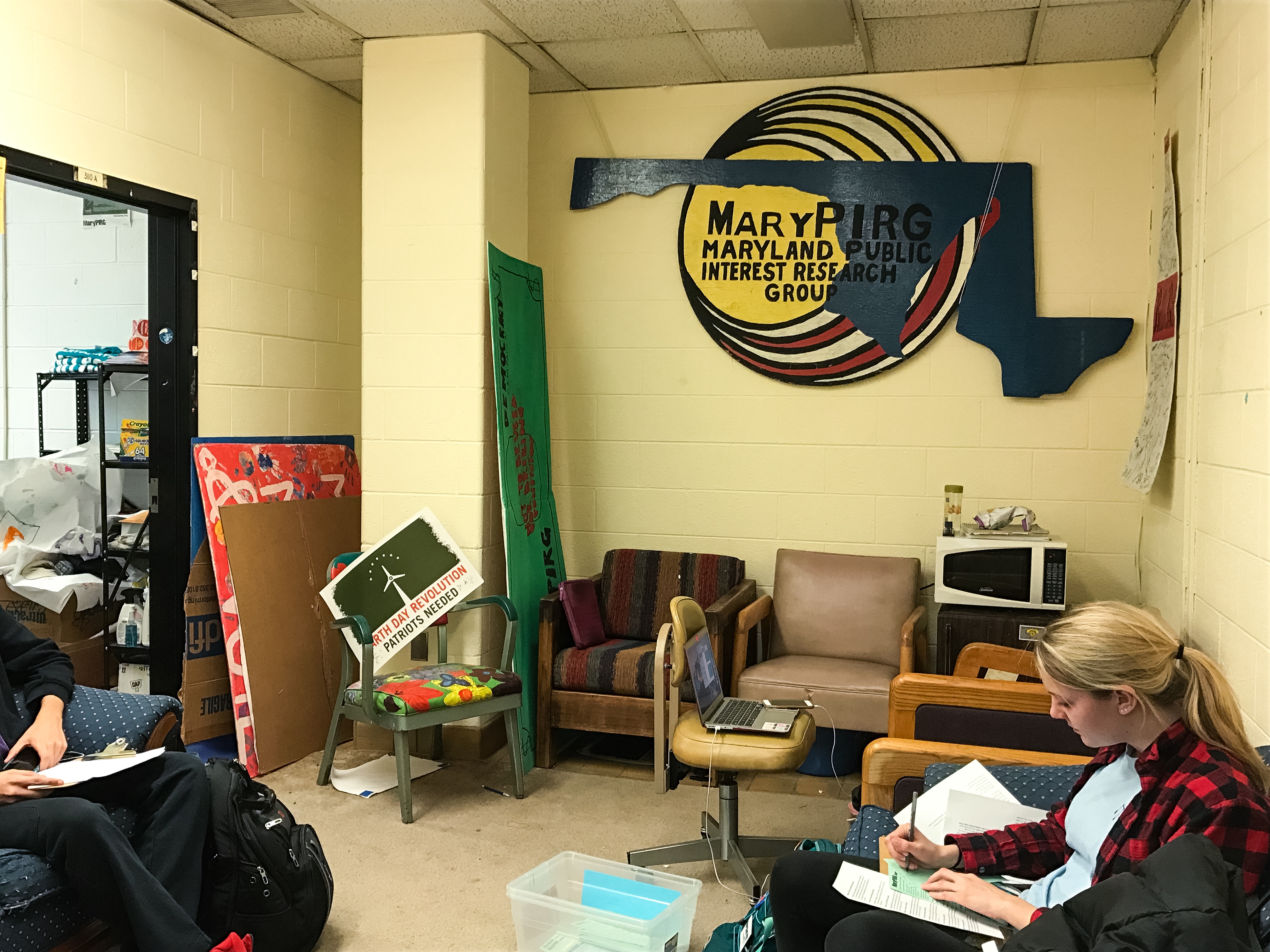University of Maryland MaryPIRG members are launching a campus campaign to support legislation that would close corporate tax loopholes in the state.
Although Maryland companies pay an 8.25 percent corporate income tax, multistate corporations have the option to reduce this tax by shifting their profits to their subsidiaries located in states that have lower income tax rates, said Andrew Richard, a senior sociology major and MaryPIRG’s corporate tax loophole campaign director.
“The public is left to pick up the slack when [multi-state corporations] aren’t paying their fair share of taxes,” Richard said. “Especially small businesses [because] it’s hard for them to compete.”
[READ MORE: To reduce Maryland’s deficit, we need to “get real” on spending]
MaryPIRG members want to garner support for a bill in the Maryland General Assembly that would attempt to thwart companies who take advantage of the current tax policy. The bill proposes Maryland adopt combined reporting, which means multistate companies would be responsible for paying taxes for any profits earned in the state, Richard said.
Combined reporting takes a company’s offshoots and averages their profits and assesses taxes. However, it is more likely to tax profits made in this state, as companies can shift most profits to a branch located in another state.
The organization’s members plan to launch a series of educational events to inform students and get them excited about the issue, said Arthak Adhikari, a senior economics major and campaign volunteer.
Richard is planning to assemble a panel consisting of state Sen. Paul Pinksy (D-Prince George’s County), who introduced the bill, policy advocates and local businesses in support of the legislation to speak to the campus in April. The group also plans to have a table in front of Stamp Student Union to inform students about the issue.
Some members of the campaign also plan to lobby in Annapolis on March 6 and speak with state lawmakers.
One of the biggest challenges of the campaign has been to get college students excited about closing corporate tax loopholes, which isn’t “the flashiest subject,” said Evan McLaughlin, a sophomore finance major and campaign volunteer.
“It’s an issue that not a lot of people know about and it’s an issue that flies under the radar,” McLaughlin said. “But it’s impact could be huge. These new tax revenue streams, that’s money that could be going to schools, to parks, to anything that we need as Marylanders.”
If the bill passes, Maryland could stand to gain $10.9 million in fiscal 2017 from new corporate income tax revenues, according to a state legislative analysis.
Twenty-five other states have adopted combined reporting, including more right-leaning states such as Texas, Kansas and Utah, said McLaughlin. Historically democratic states such as New York and Massachusetts also use combined reporting.
New Mexico has been considering similar legislation for about a decade, Pennsylvania’s governor included the tax reform policy in his budget proposal this year and Alabama lawmakers are also pushing for combined reporting.
Combined reporting could be a “new source of tax revenue that isn’t burdening small business owners,” McLaughlin said. “It’s just making sure companies who are using the resources of the state are paying their fair share back into the system.”
[READ MORE: Online sales to kick in; Amazon.com facility will close tax loophole]
States’ profits from corporate income taxes has been declining for the past 30 years, according to a 2015 report by the Multistate Tax Commission.
Maryland only taxes about 2.9 percent of corporate profit in the state, falling from about 4.5 percent in 1999, according to the report.
Arthak said he’s seen a lot of student support once the group educates them about the issue, adding that the recent presidential election has brought corporate tax loopholes closer to the forefront of many college students’ concerns.
President Trump has called for federal corporate tax rates to be reduced from 35 percent to 15 percent. In his speech to a joint session of Congress Tuesday, he said “American companies are taxed at one of the highest rates anywhere in the world.”
Trump received criticism during the presidential campaign after it was revealed he took advantage of a tax loophole to avoid paying personal federal income taxes for years after reporting a $916 million loss in 1995.
“This is very much a public interest issue,” Richard said. “You should have equal application of the law. That’s what it’s really about.”



